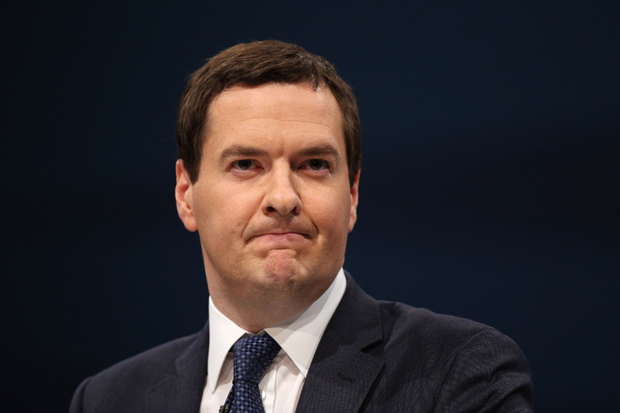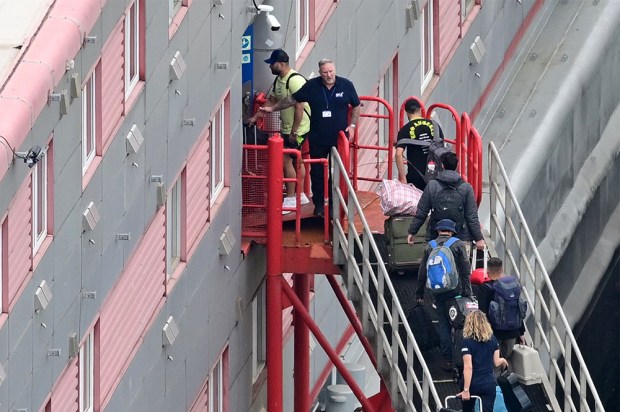George Osborne proposed an attractive idea this week: that spending on state benefits should be diverted into new infrastructure in the North. His conceit was that while welfare spending produces no economic return, spending public money on new high-speed railways and the like will inevitably boost the economy.
We can’t fault the former assertion: that paying people to be idle is a drain on the public purse. But we take issue with the notion that infrastructure will always serve to boost the economy. The Chancellor made his remarks while in Manchester helping to promote the idea of a new 125mph railway across the Pennines, a little brother for the yet-to-be-started High Speed 2 and the central axis of a hypothetical new metropolis called One North, which would unite Liverpool, Manchester, Leeds, Sheffield and Newcastle.
The promoters of HS2 only managed to achieve a positive economic case for their project by discounting the value of time businessmen spend on trains. But you don’t have to travel far by train to see passengers busily working away on laptops, reading documents and making phone calls. The rationale for the latest proposed railway is even more dubious. England’s northern cities have been places of unrealised potential ever since the heavy industries on which they were built went into decline. But it is far from clear that this can be put right through an attempted merger to create a ‘northern global powerhouse’, as Mr Osborne likes to call it.
Still less clear is how a single high-speed rail line could effect such a merger. It would bring city centres closer together, yet do nothing to improve lousy connections between the five large cities and their suburbs and satellite towns: the Oldhams, the Dewsburys, the Blackburns.
And if the quality of transport connections was the be-all and end-all of economic health, Britain would be languishing at the bottom of the European growth table, while Spain would be roaring ahead with its new high-speed rail network. The reality, of course, is the other way about. The British economy is growing at an annualised rate of 3.1 per cent while Spain’s is bumping along at 0.8 per cent.
If the Chancellor really believes that infrastructure always fuels growth, he should take a trip to Ciudad Real Airport, a €1 billion facility opened in 2009 to generate growth in a zone halfway between Madrid and the Andalucian coast. He will have to go by car, mind. The airport closed three years ago and now lies derelict.
The other glaring fault with the suggestion of switching welfare payments into infrastructure is that the Chancellor has not given any indication as to which benefits he would cut, nor how. It is all too easy to imagine the likely outcome: that far from exchanging welfare for economic growth, this latest high-speed rail project would merely add another economy-sapping tax bill on top of that which we already pay for welfare.
War and peace
Sir Ralph Norman Angell does not stand out as one of history’s great seers. In 1909 he published The Great Illusion, arguing that the economies of Europe were so intertwined that war between them had become unthinkable: they had so much to lose from conflict that their leaders would see that it did not happen. We know what happened next.
But was Angell so very wrong? Western European nations have not been at war for nearly 70 years, and no one now expects their arguing over trade and political issues to erupt into violence. This is not due to the political bonds of European Union so much as to the interdependence of European nations. Thanks to trade, war has become mutually assured economic destruction.
Is it too much to hope that globalisation will repeat that process on a worldwide scale? It already has. Hard though it might be to imagine with Gaza, Ukraine and Syria raging — and notwithstanding Douglas Murray’s points about the free world’s failure to tackle those crises — the last decade has seen fewer war deaths than any in the past 100 years. Each death in Ukraine, Gaza and elsewhere is terrible. But we shouldn’t let it blind us to the bigger picture: we are living in the most peaceful era in history.
Got something to add? Join the discussion and comment below.
Get 10 issues for just $10
Subscribe to The Spectator Australia today for the next 10 magazine issues, plus full online access, for just $10.
You might disagree with half of it, but you’ll enjoy reading all of it. Try your first month for free, then just $2 a week for the remainder of your first year.














Comments
Don't miss out
Join the conversation with other Spectator Australia readers. Subscribe to leave a comment.
SUBSCRIBEAlready a subscriber? Log in